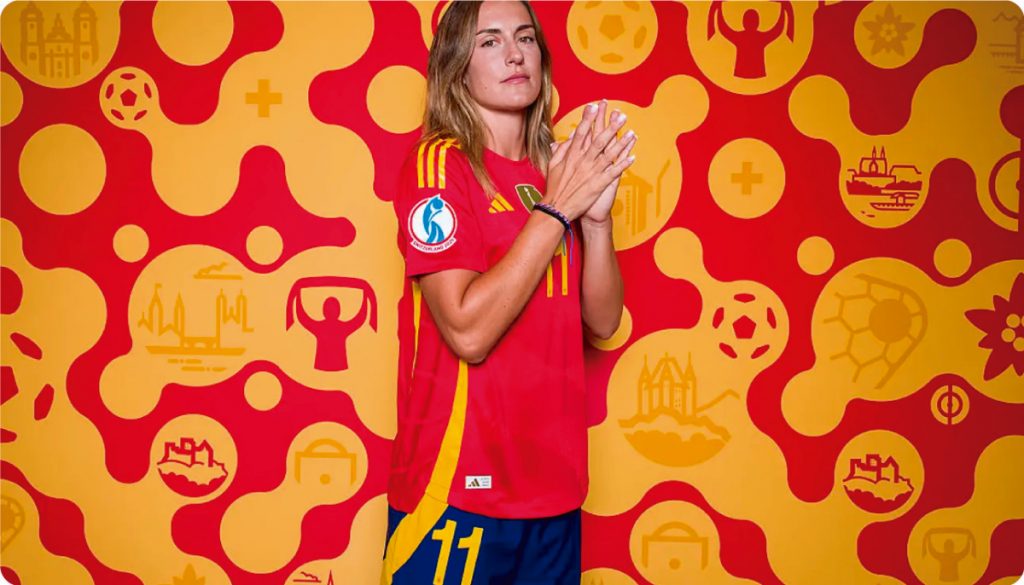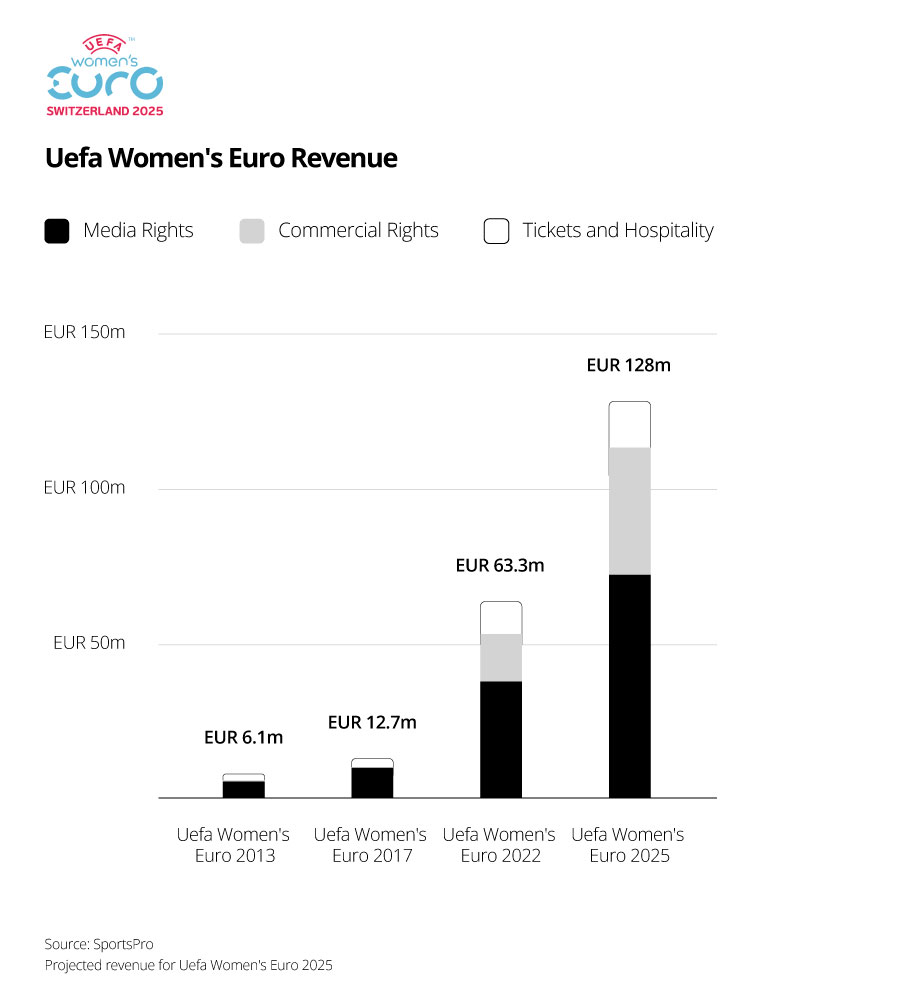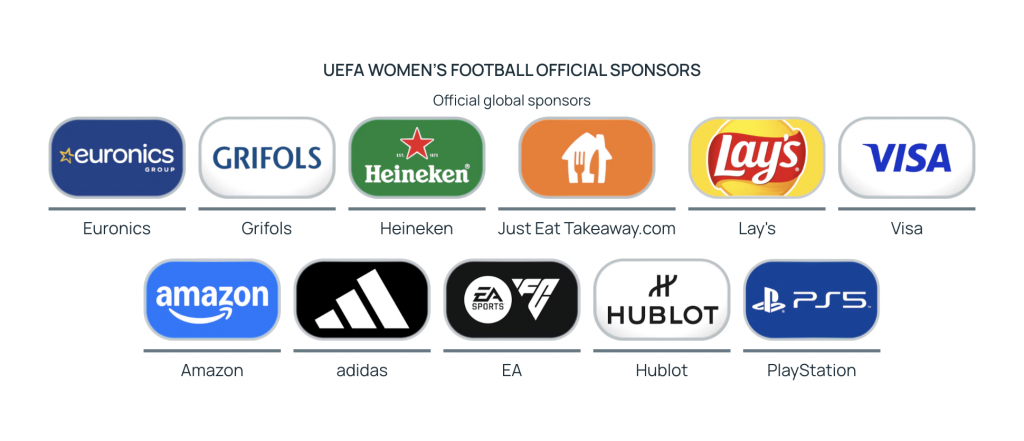
Under pressure from the Trump administration, 80% of US multinationals changed their ESG policies to avoid legal and political risks.
This context presents a real dilemma for sponsors of women’s sport:
a) Pull back on sponsorships, giving in to political pressure
b) Reaffirm their commitment to gender equality
It’s at moments like these that we see who sponsors out of conviction — and who simply followed a trend.
The pressure for stability, profitability, and safety is immense.
As with any strong sponsorship, the decision to invest must meet business criteria. Sponsoring women’s football makes sense — if it brings your brand closer to a strategic audience.
According to Nielsen, women’s football is expected to reach 800 million fans by 2030 — 60% of them women. The study also indicates that women will be responsible for 75% of household purchasing decisions.
Uefa’s Women’s Euro shows how women’s football can grow through consistent planning and investment.

From €3.9 million in 2005, the projected revenue for 2025 is €128 million — a 33-fold increase.
Commercial deals will contribute €41 million — nearly triple the figure from 2022 (€15.3 million), and well above the sponsorship revenue of the last Uefa Women’s Champions League (€9.8 million). In 2017, commercial revenue from the Women’s Euro was just €147,000.
In 2025, the Women’s Euro have 15 sponsors.

Additionally, Uefa has secured 11 exclusive sponsors dedicated to the women’s game.

So, what did Uefa do differently?
- Created a dedicated commercial strategy for women’s competitions back in 2017, with tailored projects for brands looking to connect with this audience.
- Increased reach through free-to-air broadcasts in key markets — partnerships like DAZN’s with the Women’s Champions League have been crucial.
- Promoted the social impact and quality of women’s football with campaigns like #WePlayStrong, widely covered by the media.
Traditionally seen as a niche, the Women’s Euro will be broadcasted in 190 countries, reaching a cumulative audience of 500 million.
Uefa is aware that financial sustainability remains a challenge: the 2025 edition is expected to run a loss of €20–25 million. But this investment is aimed at long-term returns — across leagues, clubs, and society.
Euro sponsors are doing their part.
Globally, those who invested with strategy and conviction will stay the course — even under pressure.
Those who sponsored just to look good in the spotlight may soon fade from it.
Receive my weekly post